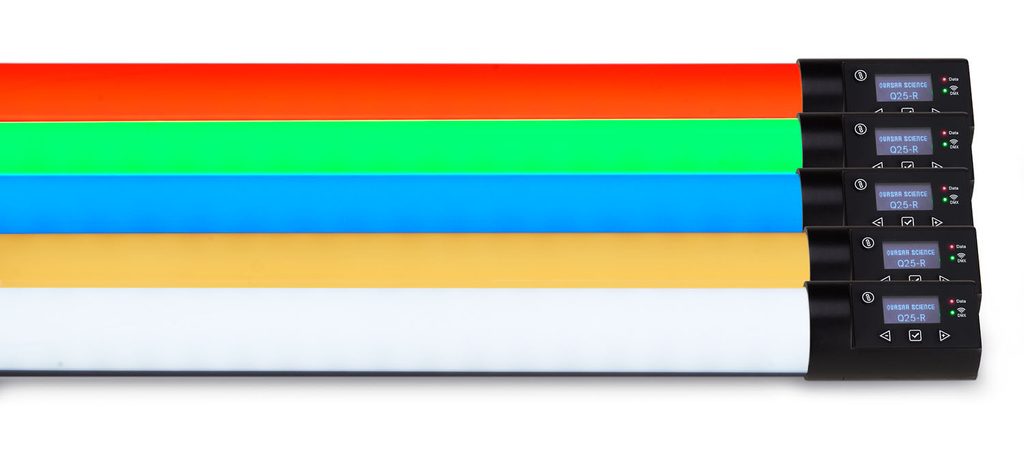LED Tube Light Comparisons - How do Quasar, Astera and SGC stack up? As I always like to say, one isn't necessarily better than the other even though they all have different features, but rather, they should all be considered tools in the tool box.
What's your priority? Do you want the latest release of Quasar, the brand that started it all, where form factor and color control is pushed to new dimensions? Or maybe what you need is pixelation control from Astera, the brand over the years has come to be known as the standard for creating in-shot effects. And if you can do without pixelation effects for your job and need to focus more on simplicity and budget, then SGC would be the right choice for you.
There are so many more details and tech specs we could get into so that's why I created this comparison page. Check out my short descriptions here, then scroll down to see the actual product pages. Check them all out and decide for yourself which is the right LED Tube for your needs. Then reach out to us and get a quote for pricing and availability. We're here to help you get the best deal on the LED Tubes you need!
QUASAR SCIENCE - The LED tube brand that started it all. Quasar has recently come with the RR and the R2. The R2 is second version of it's famous Rainbow 2' & 4' RGB LED tubes. The R2 now boasts a unique rigging / accessory system and enhanced wireless and pixelation control. The new RR is essentially the same technology as the R2, but in an all new form factor that no one else offers. Imagine a 4' tube folded in half to make a really fat 2'. The same goes for the 4' RR - It's kind of like an 8' tube folded in half. The advantage? Two rows of pixelation for producing truly unique effect. A bit on the pricey side, true... but Quasar has really come up with technology that will likely give Astera users a reason to think twice.
ASTERA - Astera LED tubes came to the party a few years after Quasar, but they brought something new that the motion picture biz had never really seen before: Pixelation effects. Once that hit the scene, there was no turning back - Everybody had to have them. And to a certain degree, years later they still do. The Helios is 2', Titan is 4' (preceded by the 4' AX1) and Hyperion is 8' - Approximately. People will generally tell you that these tube lengths are not exact, but close enough to be understood for industry standard lingo. The big advantages here? ACDC battery operation, wireless DMX control, program pixelation effects and could be sold in 4 or 8-tube kits. Whenever you need to get really fancy with visual effects and need the flexibility of wireless control, the Astera line has certainly claimed it's place. Like the Quasar R2 & RR, these are also quite expensive but as we all know, there's a lot of technology that goes into these devices.
SGC - The great thing about SGC LED tubes are value packed and simple. They have "Hybrid" (Bi-Color range) and "Prism" (RGB & effects) versions available. These days, the Prisms seem to be the go to choice. The SGC tubes are best described as an elevated and perfected version of the original Quasar Rainbow 1 in my opinion. In other words, think of all the stuff that could've been improved on the Rainbow 1, and SGC did it for you. ACDC control on these is very well thought out with a removable / rechargeable Li-Ion battery inside the tube - not an external battery - a very well engineered internal battery that slides in and out. This is perhaps my favorite feature and sets it apart from other tubes. Wireless DMX with 2.4 Ghz open source is built in and can also be controlled with the Aputure Sidus Link Bluetooth Mesh App. These are available as singles, pairs or 4 / 8 tube kits too. But the big one? Budget. SGC systems are priced at about half of everything else out there. You don't get pixelation control on SGC (yet) but when color and wireless control are all you need to get the job done, SGC helps you hit the mark on simplicity and budget.
There are some quick intro videos HERE or check out the product pages too.

